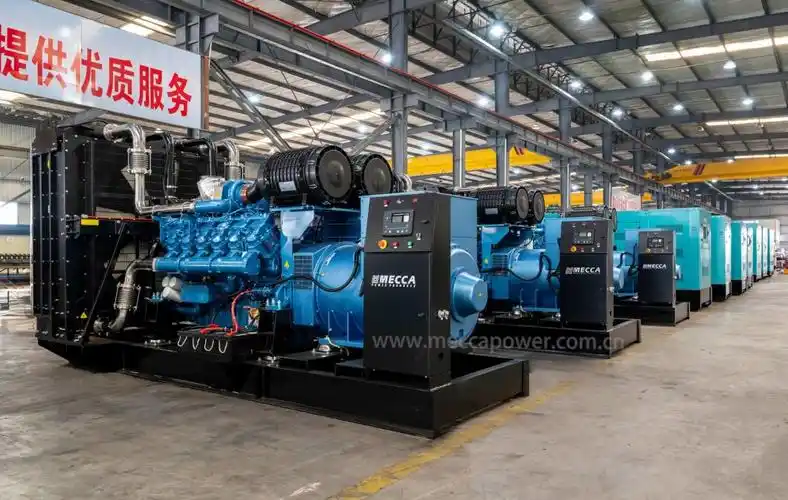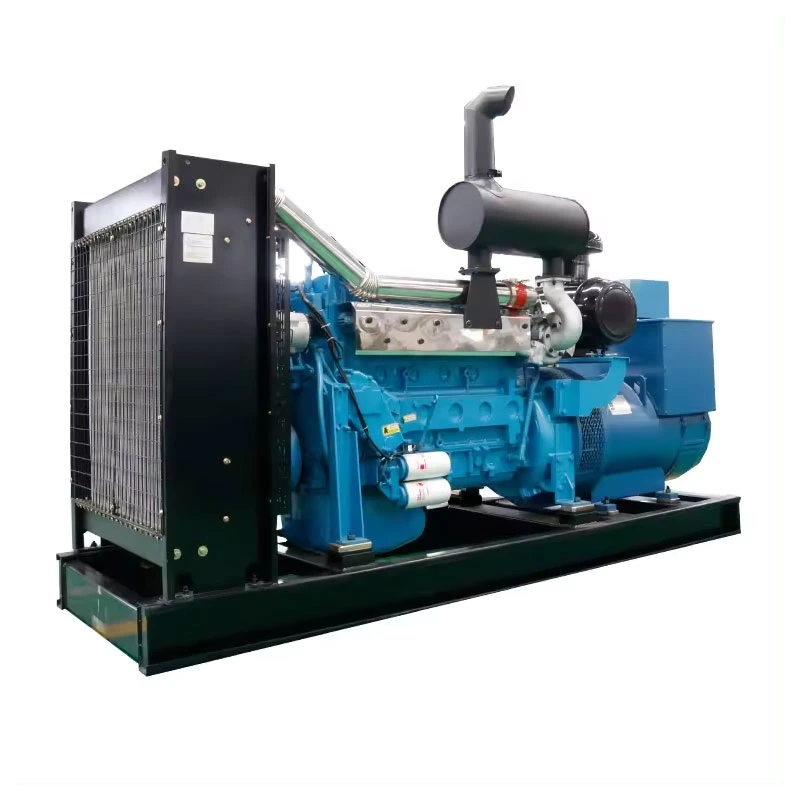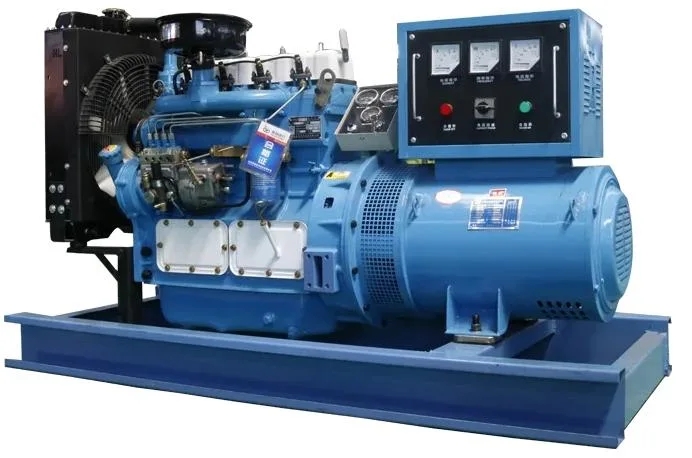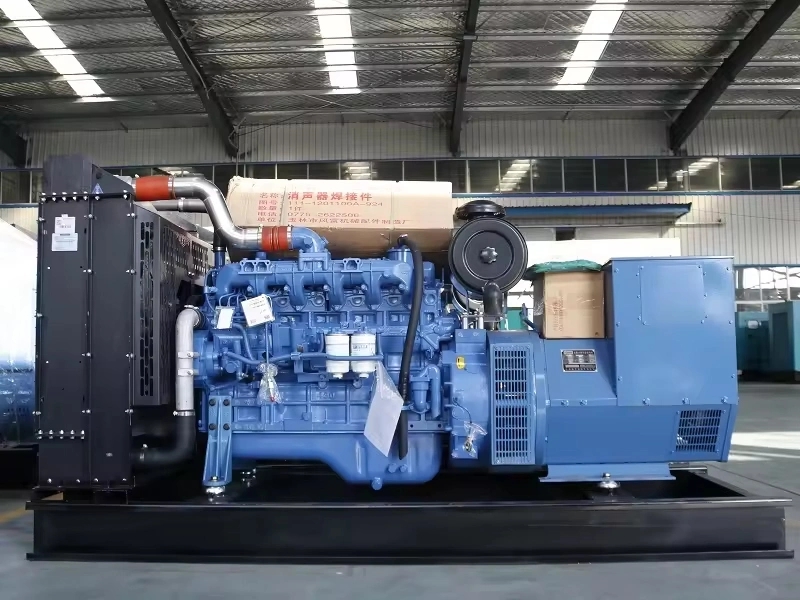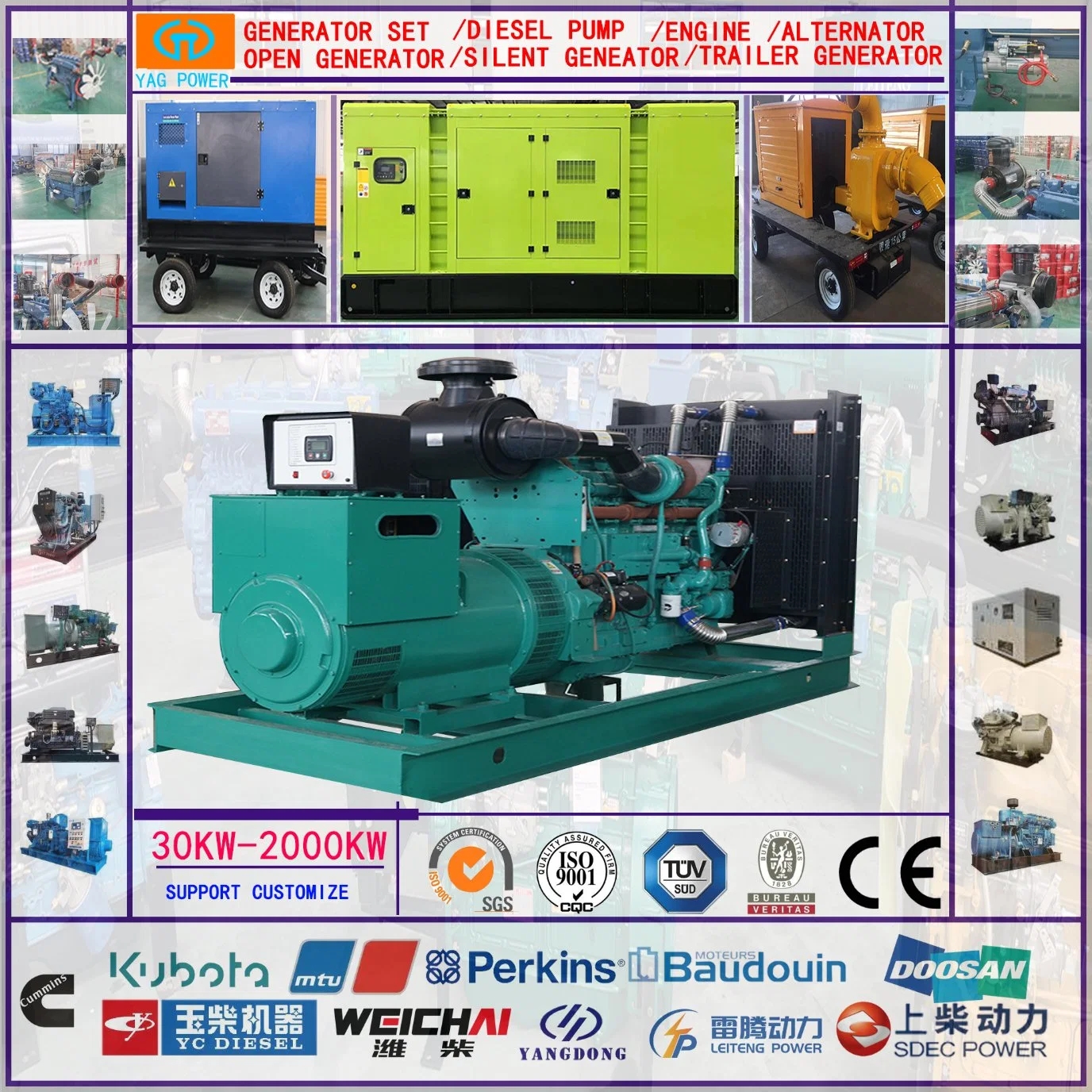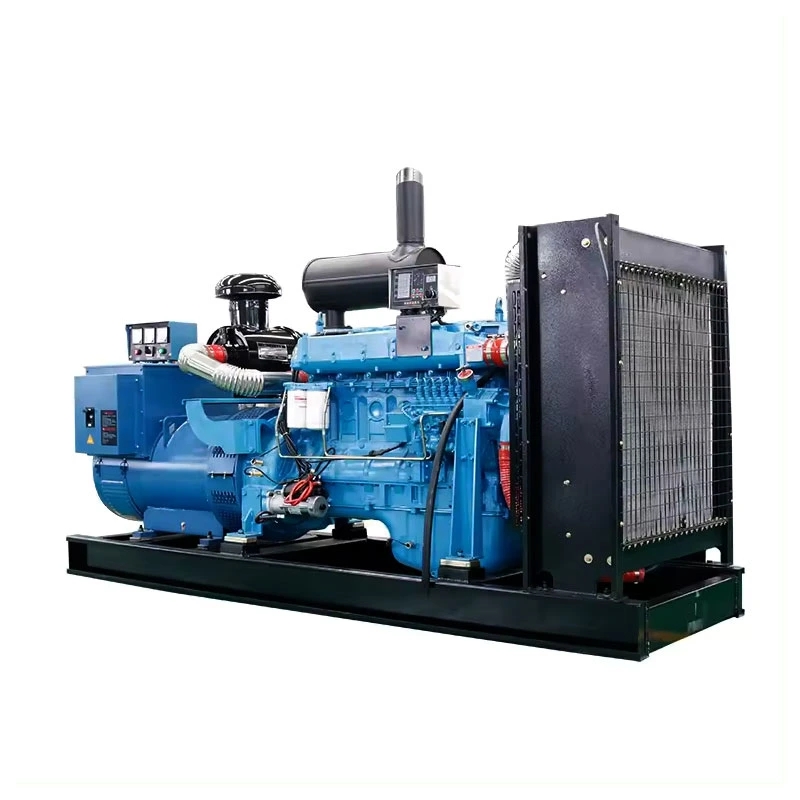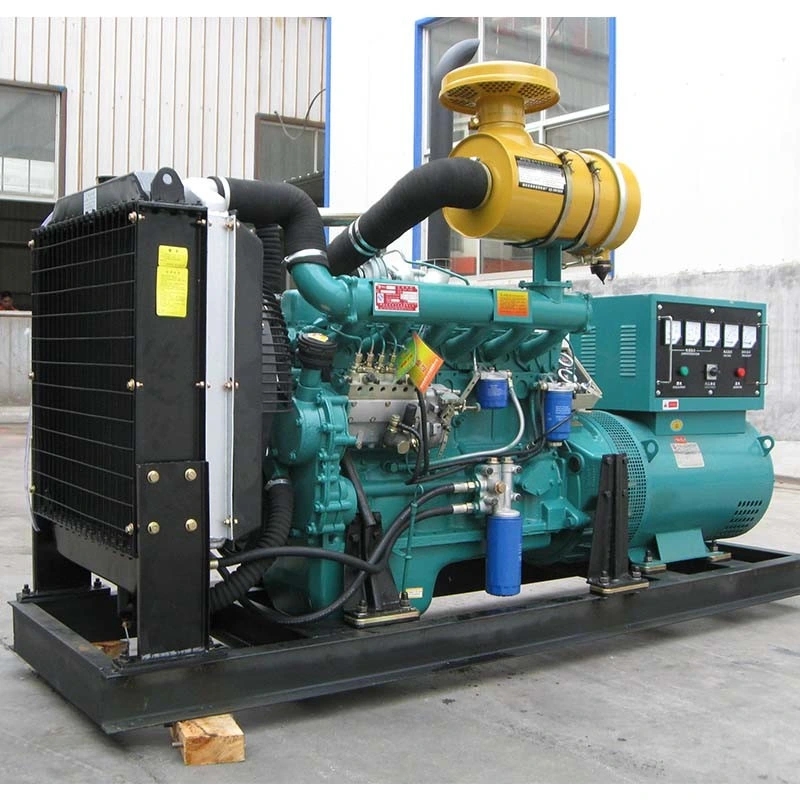Table of Contents
Toggle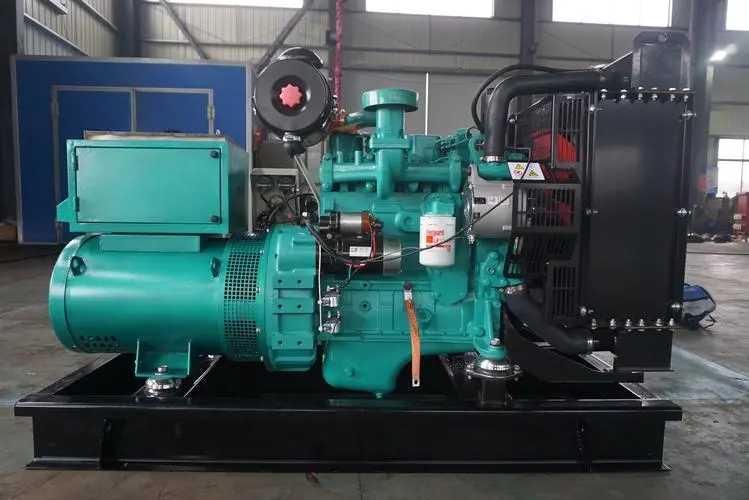
In today’s fast-paced world, where power outages can disrupt critical operations and lead to substantial losses, having a reliable backup power source is of paramount importance. Diesel generators have emerged as a dependable solution, providing a steady stream of electricity during emergencies or planned maintenance. However, choosing the right diesel generator for your specific needs can be a daunting task, as there are numerous factors to consider. This comprehensive guide aims to equip you with the knowledge and insights necessary to make an informed decision when selecting a diesel generator, ensuring that your investment aligns with your power requirements, operational demands, and long-term goals.
Assessing Power Requirements
The foundation of selecting the appropriate diesel generator lies in accurately assessing your power requirements. This crucial step involves identifying the total electrical load you need to sustain during an outage, accounting for all essential equipment, appliances, and devices that must remain operational simultaneously. It is imperative to determine the maximum power draw of these components to ensure that the generator you choose can handle the cumulative demand without overloading.
Voltage and Frequency Considerations
In addition to the overall power requirements, it is essential to consider the voltage and frequency specifications of your electrical equipment. Most residential generators produce 120/240V, while commercial and industrial applications may require 208V or 480V. Failing to match the generator’s output with the voltage and frequency requirements of your equipment can lead to compatibility issues, potentially causing damage or malfunction.
Fuel Type and Capacity
Diesel generators are known for their longer run times compared to gasoline-powered counterparts of similar size. When selecting a diesel generator, it is crucial to consider the fuel type and capacity required to meet your operational needs. Factors such as the duration of anticipated power outages and the availability of fuel sources in your area should be taken into account to ensure uninterrupted operation.
Noise Level Considerations
The noise level produced by a diesel generator is an important factor, especially in residential or commercial areas where noise pollution can be a concern. Generators with enclosures or sound-dampening features may be necessary to comply with local noise regulations and prevent disturbances to the surrounding environment.
Weather Conditions and Location
The location and weather conditions where the generator will be installed play a significant role in determining the appropriate generator choice. If you reside in an area with extreme temperatures, ensuring adequate ventilation and cooling systems is crucial. Similarly, regions prone to heavy rainfall or harsh weather conditions may necessitate generators with robust enclosures to protect them from the elements.
Sizing the Generator
Once you have a comprehensive understanding of your power requirements, the next step is to determine the appropriate size of the diesel generator. This process involves considering several key factors, including the type of load connected, start-up current demands, and the potential for future expansion.
Load Types and Transient Considerations
Different types of loads, such as motors, pumps, and lighting systems, can have varying power demands, particularly during start-up. It is essential to account for these transient loads, as they can significantly impact the generator’s sizing requirements. Failure to consider these factors can lead to voltage and frequency dips, potentially causing equipment damage or malfunction.
Motor Starting Requirements
Electric motors, especially those used in industrial applications, can draw substantial amounts of current during start-up, often six times or more than their rated operating current. Properly sizing the generator to handle these high inrush currents is crucial to ensure smooth operation and prevent potential damage to the motor or the generator itself.
Allowance for Future Expansion
When selecting a diesel generator, it is advisable to consider potential future growth or expansion plans. Choosing a generator with a capacity slightly higher than your current requirements can accommodate future additions or upgrades to your electrical equipment, providing flexibility and minimizing the need for frequent replacements or upgrades.
Modular Capability and Scalability
In certain applications, such as large-scale industrial facilities or data centers, the power requirements may exceed the capacity of a single generator. In such cases, modular capability and scalability become essential considerations. Many modern generators offer the ability to parallel multiple units, allowing for seamless integration and load sharing.
Benefits of Modular Systems
Modular power systems offer several advantages, including enhanced reliability, reduced downtime during maintenance, and improved fuel efficiency. By distributing the load across multiple generators, the failure of a single unit can be mitigated, ensuring uninterrupted power delivery. Additionally, modular systems allow for selective operation of generators based on demand, optimizing fuel consumption and reducing operational costs.
Ease of Integration and Expansion
When considering modular systems, it is crucial to evaluate the ease of integration and expansion capabilities offered by the generator manufacturer. Factors such as plug-and-play functionality, rapid configuration, and compatibility with power management systems can streamline the process of adding or removing generators from the system, ensuring a smooth transition and minimizing downtime.
Control Systems and Remote Monitoring
Advanced control systems and remote monitoring capabilities have become increasingly important in modern diesel generator installations. These features not only enhance operational efficiency but also provide valuable insights into the generator’s performance and maintenance requirements.
Remote Start and Programming
Many contemporary generators offer remote start and programming capabilities, allowing operators to control the generator from a distance. This feature can be particularly useful in remote locations or situations where physical access to the generator is limited or hazardous.
Performance Monitoring and Diagnostics
Sophisticated control systems can provide real-time performance data, including fuel consumption, load levels, and operational parameters. This information can be invaluable for optimizing generator performance, identifying potential issues before they escalate, and scheduling timely maintenance.
Integration with Building Management Systems
In commercial and industrial settings, the ability to integrate the generator’s control system with building management systems (BMS) can provide a centralized platform for monitoring and controlling various aspects of the facility’s operations, including power management, environmental controls, and security systems.
Fuel Efficiency and Autonomy
As energy costs continue to rise, fuel efficiency has become a critical consideration when selecting a diesel generator. Advancements in generator design and energy-efficient technologies have significantly improved fuel consumption rates, enabling longer run times and reducing operational expenses.
Fuel Consumption Forecasting
Before making an investment in a diesel generator, it is advisable to request fuel consumption forecasts from multiple manufacturers. These projections can provide valuable insights into the long-term operational costs associated with different generator models, allowing you to make an informed decision based on your budget and energy requirements.
Alternative Fuel Options
In addition to traditional diesel fuel, some generators offer the capability to run on alternative fuels, such as bio-gas or natural gas. While these options are still emerging, exploring their availability and compatibility with your generator can potentially reduce environmental impact and operational costs.
Physical Considerations and Transportation
The physical dimensions and transportation requirements of a diesel generator can have a significant impact on the overall installation and operational costs. It is essential to consider factors such as the generator’s size, weight, and mobility to ensure efficient deployment and maintenance.
Portability and Mobility
Depending on your application, you may require a portable or stationary diesel generator. Portable generators offer the flexibility to move the unit to different locations as needed, making them ideal for temporary or mobile applications. Conversely, stationary generators are designed for permanent installation and may be better suited for fixed locations or critical infrastructure.
Lifting and Handling Capabilities
When selecting a diesel generator, it is important to consider the available lifting and handling capabilities at the installation site. Features such as lifting eyes, forklift slots, and stackability can greatly facilitate the transportation and positioning of the generator, reducing the need for specialized equipment and minimizing associated costs.
Space Constraints and Footprint
The physical footprint of the generator is another crucial factor, especially in space-constrained environments. Evaluating the available space and considering the generator’s dimensions, including clearance requirements for ventilation and maintenance access, can help ensure a proper fit and optimal performance.
Environmental Compliance and Regulations
Diesel generators are subject to various environmental regulations and emission standards, which can vary depending on the region or country of operation. Ensuring compliance with these regulations is not only a legal requirement but also contributes to reducing the environmental impact and promoting sustainable practices.
Emission Standards and Noise Regulations
Diesel generators produce exhaust emissions and noise, which can have adverse effects on the environment and surrounding communities. Selecting a generator that meets or exceeds the applicable emission standards and noise regulations is essential to avoid fines, legal complications, and potential health hazards.
Enclosures and Sound Attenuation
In noise-sensitive environments, such as residential areas or healthcare facilities, it may be necessary to invest in generators with specialized enclosures or sound attenuation features. These enclosures can significantly reduce the noise levels produced by the generator, ensuring compliance with local regulations and minimizing disturbances to the surrounding area.
Maintenance and Service Requirements
Like any complex machinery, diesel generators require regular maintenance and service to ensure optimal performance, reliability, and longevity. Considering the maintenance requirements and service support offered by the manufacturer can have a significant impact on the overall cost of ownership and operational efficiency.
Scheduled Maintenance and Service Intervals
Different generator models and brands may have varying maintenance schedules and service intervals. It is essential to understand these requirements and factor them into your operational planning and budgeting. Neglecting regular maintenance can lead to premature component failure, increased downtime, and higher repair costs.
Availability of Service and Support
The availability of service and support from the manufacturer or authorized service providers is a critical consideration, especially for mission-critical applications or remote locations. Prompt access to spare parts, technical expertise, and emergency support can minimize downtime and ensure that your generator remains operational when you need it most.
Brand Reputation and Warranty Coverage
When investing in a diesel generator, it is crucial to consider the brand reputation and warranty coverage offered by the manufacturer. Reputable brands with a proven track record of quality and reliability can provide peace of mind and ensure that your investment is well-protected.
Brand History and Customer Satisfaction
Researching the brand’s history, customer reviews, and industry reputation can provide valuable insights into the quality and reliability of their products. Brands with a strong commitment to customer satisfaction and a track record of delivering high-performance generators are likely to offer a superior ownership experience.
Warranty Coverage and Terms
Comprehensive warranty coverage can protect your investment and provide assurance that any defects or issues will be addressed promptly and without significant additional costs. It is essential to carefully review the warranty terms and conditions, including the duration, covered components, and any exclusions or limitations.
Cost Considerations and Return on Investment
While the initial purchase cost of a diesel generator is an important factor, it is crucial to consider the long-term operational costs and potential return on investment (ROI) when making your decision. A thorough cost-benefit analysis can help you identify the most cost-effective solution that aligns with your budget and operational requirements.
Initial Purchase Cost vs. Lifetime Costs
While a lower initial purchase cost may seem appealing, it is essential to consider the lifetime costs associated with the generator, including fuel consumption, maintenance expenses, and potential downtime costs. In many cases, investing in a higher-quality generator with superior fuel efficiency and reliability can lead to significant long-term cost savings.
Calculating Return on Investment (ROI)
To evaluate the potential return on investment, it is necessary to consider the costs associated with power outages or disruptions to your operations. By quantifying the financial impact of downtime, lost productivity, and potential revenue losses, you can better assess the value that a reliable diesel generator can provide and determine the appropriate investment level.
Financing Options and Leasing Alternatives
For many businesses and organizations, the upfront cost of a diesel generator can be a significant investment. Exploring financing options or leasing alternatives can help alleviate the financial burden and provide more flexibility in managing cash flow. However, it is essential to carefully evaluate the terms and conditions of these options to ensure they align with your long-term goals and budgetary constraints.
Conclusion
Selecting the optimal diesel generator for your specific needs is a complex process that requires careful consideration of various factors, including power requirements, load characteristics, environmental conditions, and operational demands. By following the comprehensive guide outlined in this article, you can navigate the decision-making process with confidence, ensuring that your investment aligns with your long-term goals and provides the reliable backup power source you need to maintain business continuity and minimize downtime.
Remember, a well-informed decision today can lead to significant cost savings, improved operational efficiency, and peace of mind for years to come. Investing in a quality diesel generator from a reputable manufacturer, coupled with proper maintenance and adherence to regulations, can be a valuable asset for any organization or facility.




